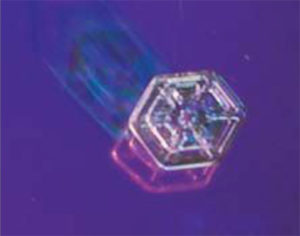Prostate Cancer Immunotherapy Research Receives Grant

 Immunotherapy is a treatment that helps a patient’s own immune system attack and kill tumor cells. Although there have been advances in the development of immunotherapies for other cancers, the field has not been as successful in prostate cancer. Some researchers have speculated this is because prostate tumors do not contain many “infiltrating” immune cells that enter tumor tissues and have direct contact with tumor cells.
Immunotherapy is a treatment that helps a patient’s own immune system attack and kill tumor cells. Although there have been advances in the development of immunotherapies for other cancers, the field has not been as successful in prostate cancer. Some researchers have speculated this is because prostate tumors do not contain many “infiltrating” immune cells that enter tumor tissues and have direct contact with tumor cells.
Using nanotechnology to hone in on tumor cells
The new project is entitled Spherical Nucleic Acids as Therapeutic Vaccines for the Treatment of Prostate Cancer. The goal of the project is to develop an original “spherical nucleic acid” (SNA) vaccine made of tiny nanoparticles that can carry antigens and cellular signals that activate effective antitumor immune responses. Unlike other vaccines that have been developed to treat prostate cancer, particularly those that are cell-based or use viral vectors, the SNA vaccines are chemical in nature. This chemical nature gives researchers precise control over the vaccine’s composition and structure, and thereby provides an opportunity to design a vaccine consisting specifically of prostate cancer-specific antigens and immunestimulatory molecules. SNAs are able to efficiently enter immune system cells to induce cellular immune responses to target and attack prostate cancer cells.
Targeting a prostate cancer protein
Specifically, the researchers will develop and test various forms of SNAs to vaccinate against the protein PSMA, of which prostate cancer cells express high amounts. The team will evaluate the effectiveness of the SNA vaccines in preclinical models in the laboratory, testing how well they activate immune Tcell responses against the PSMA protein and prohibit tumor growth. They will also test the SNA vaccine in combination with other types of immunotherapies, including checkpoint blockade agents.
Multidisciplinary expert team
Principal Investigator Chad Mirkin, PhD leads the project. Dr. Mirkin is a chemist at Northwestern University and Director of the International Institute for Nanotechnology. The research team also includes Bin Zhang, M.D./PhD, a mouse immunologist; Timothy Kuzel, M.D., an oncologist; and Andrew Lee, PhD, a chemist. Dr. Catalona helped write the grant and will help recruit patients to participate in the studies involving human immune cells.
Promising future of immunotherapy for prostate cancer
Currently there is only one FDA approved immunotherapy for prostate cancer, sipuleucel-T. This drug has improved overall survival for patients but not progression-free survival, and it has not worked well in patients with advanced prostate cancer. If the SNA vaccine is successful, it could be tested in patients in a clinical trial and eventually provide another independent treatment mechanism to add to surgery, radiation, hormonal and chemotherapy for prostate cancer patients. The SNA vaccine could be an effective treatment for men with metastatic castrationresistant prostate cancer and possibly earlier-stage disease.











